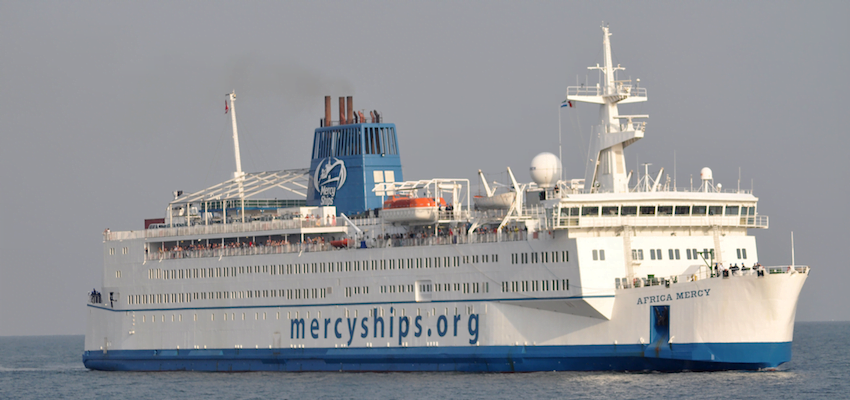THE Africa Mercy arrived at the Port of Dakar, Senegal, on Thursday.
The visit comes after an invitation from the President of Senegal, and the minister of health and other organisations to help support the continued development of the country’s health care system.
The Africa Mercy – the world’s largest non-governmental hospital ship – will stay at the port for 10 months. During that time, Mercy Ships plans to provide 1200 to 1700 life-changing surgeries on board and to treat more than 4000 at a land-based dental clinic. The organisation will also provide health care training in partnership with local medical professionals.
Mercy Ships CEO Donovan Palmer said the organisation was privileged to return to Senegal.
“Together with current government and health professionals, we hope to contribute to the alleviation of suffering for those with least access to surgical care as the country continues to refine their national surgical plan, in line with the government’s Plan for an Emerging Senegal (PES) policy framework,” he said.
Mercy Ships partnership with a country involves a five-phase process, beginning approximately two years before ship arrival, includes 10 months with the ship in-country, and continues for around two years after the ship leaves.
The surgeries carried out on the ship are provided at no cost to the patients or local professionals, thanks to donations from partnering organisations and people.
These surgical procedures will include tumour removal and other maxillofacial reconstruction and plastic surgery, cleft lip and palate repair, cataract removal, obstetric fistula repair, oral and dental surgery, and orthopaedic help for clubfoot and bowed legs.
Potential patients have been encouraged to attend regional pre-selection days to receive appointments for their specific medical needs.
The Africa Mercy is a surgical hospital ship and cannot treat long-term illnesses such as diabetes, hypertension, sickle cell anaemia, ulcers, HIV/Aids or heart conditions.
Although Senegal has a solid health care system in place, there is still a need for capacity building and surgeries, especially in the rural areas where approximately 55% of the population lives (around 8.8 million) and access is limited.

